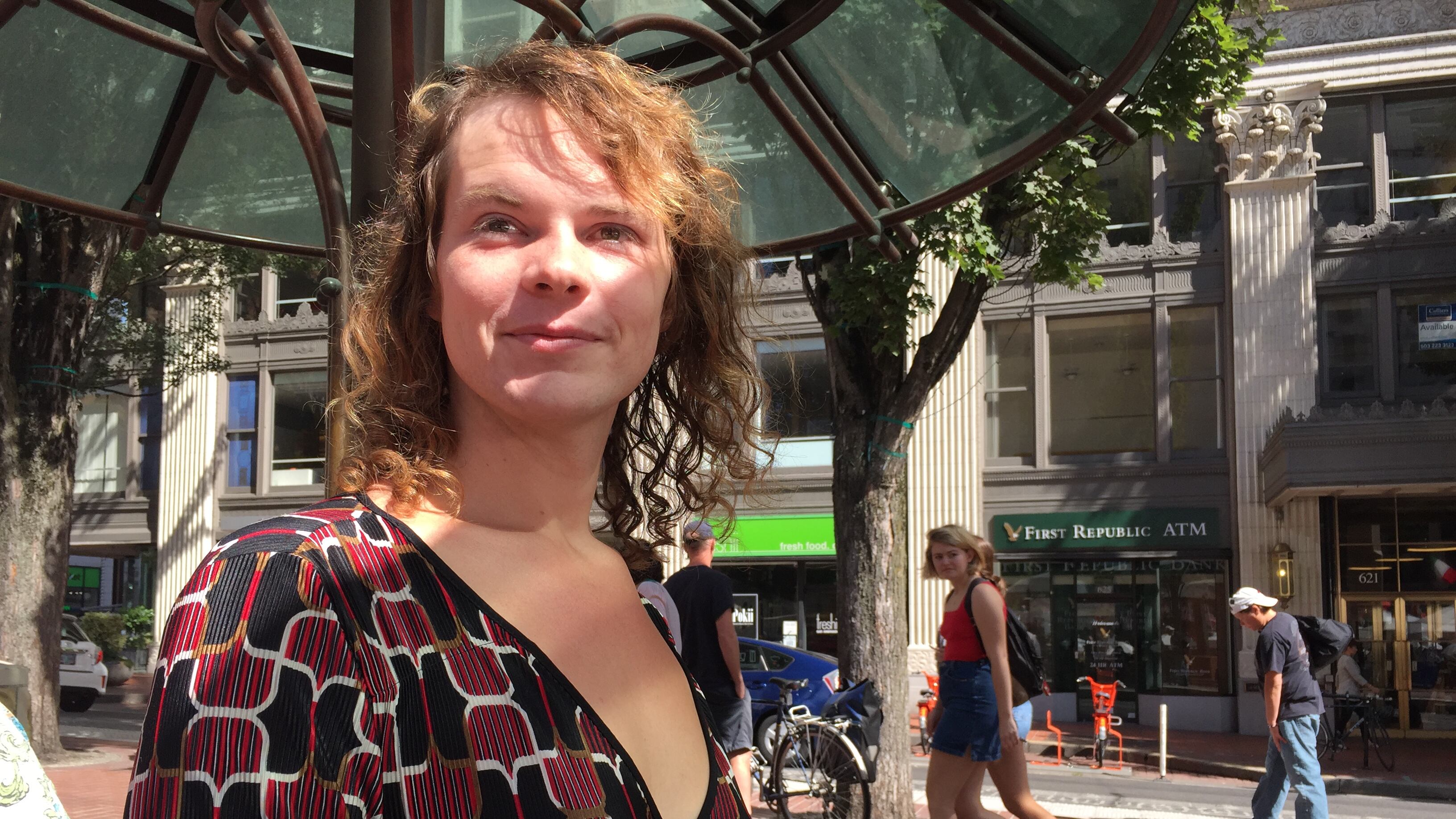When she first considered transitioning from a man to a woman, Sophia Conquest made a checklist of "bad and good things."
On the bad side: As a transgender woman, she'd essentially have a target on her back. "I knew it was going to happen," Conquest says.
The day before WW interviewed her last month in Pioneer Courthouse Square, Conquest says, a child threw rocks at her. Earlier that week, she adds, a woman physically assaulted her in a confrontation that began with the woman insulting Conquest with slurs, like "She Man." Conquest eventually fended her off with her purse while running away.
Such conflict is better than living a lie, she says. Before transitioning, "I was constantly trying to kill myself."

Conquest isn't alone. The number of transgender homeless people living on Portland-area streets has officially doubled in the past two years.
It's still a tiny count: In Multnomah County, the number of transgender homeless individuals counted in the official "point in time" homeless count went from 20 in 2015 to 44 this year.
"That number is absolutely an undercount," says Stacy Borke, senior program director at Transition Projects Inc (the name refers to transitioning into housing, not gender). "They do not identify themselves in the street count due to the safety issues."
Both transgender houseless people and experts say the rise is due to anti-trans discrimination in housing—sometimes bias from landlords, sometimes rejection by family and friends.
Conquest says her housing options have been narrowed due to discrimination so many times she "stopped counting." "I actually had a couple [recent] housing situations that might have panned out, and then they found out that I was trans. And then they were like, 'Oh, never mind.'"
Soft-spoken and quick to laugh, the 27-year-old Conquest is a hypnotist, dominatrix and former mixed martial artist. When asked about her martial arts prowess, she challenged this reporter to spar at Pioneer Courthouse Square—an offer that was immediately declined.
Conquest is "couch surfing" now, she says, but has lived on the street, always sleeping among friends. "I'm sort of trying to avoid staying on the street because I don't feel like being raped or murdered," Conquest says, with a wan smile.
Nationally, discrimination against trans individuals leads to both homicides and homelessness, Human Rights Campaign says. More trans people were killed in 2016 than ever before: 22.
"Some of these cases involve clear anti-transgender bias," the group's website explains. "In others, the victim's transgender status may have put them at risk in other ways, such as forcing them into homelessness."
Taylor, a lifelong Portlander and trans woman who asked that her real name not be used, found herself on the street after being hospitalized for a suicide attempt in 2015. In the hospital, she was diagnosed with gender dysphoria, a conflict between one's physical or assigned gender and the gender with which one identifies.
At the time, Taylor was a married man. His wife picked him up from the hospital.
"When we got home, she already had my stuff packed and she told me to leave," Taylor recalls.

Experts say Portland's progressiveness—including state-funded health care for people who are transitioning—allows more people to embrace their gender identity. But Jenn Burleton, executive director of TransActive Gender Center, says that increased feeling of safety has been matched by backlash.
The issue can heat up suddenly. Late last month, the normally civil biweekly meeting of a houseless advocacy nonprofit had to adjourn after a shouting match erupted over anti-transgender bias.
The Portland Village Coalition is a nonprofit group that advocates for houseless people, and whose general assemblies at the Q Center bring two dozen housed and houseless people together to discuss issues raised by local villages such as Hazelnut Grove in North Portland.
At the Aug. 25 meeting, Zoe White, a transgender woman, accused two other Hazelnut Grove residents, Joe Bennie and Marvin Ross, of anti-trans discrimination. A loud argument ensued that derailed the proceedings.
Bennie and Ross yelled back at White, apparently accusing her of speaking out of turn. Bennie accused White of "pulling a gun" on someone at Hazelnut Grove.
"It was unloaded," White responded.
White accused the Village Coalition of not upholding its bylaws by allowing two men who are "openly trans discriminatory" to participate. The group adjourned briefly. White explained what had her so upset: "They said, 'You have a dick, so in one way, shape or form, you're a man.'"
White, Bennie and Ross all returned for pizza and calmer discussion.
"This is real life, and we're in the middle of it," steering committee chairman David Bikman said.


